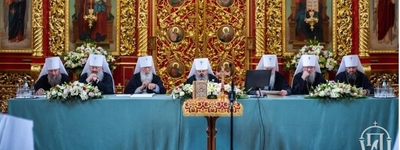Plague and Piety
…more detailed prescriptions from … bishops, and energetic execution of these directives by both clergy and laity, will help limit the spread of COVID-19 through the Coronavirus. It may also dispel some of the lingering public suspicion about the Church’s alleged indifference to science.
Both Ecumenical Patriarch Bartholomew and Ukrainian Greek-Catholic Major Archbishop Sviatoslav have issued statements on the Coronavirus pandemic. Both stress the need to utilize the insights of science as well as to fulfill the duties of Christian faith and love. Stressing that the faith does not require “the abolition of human reason,” Patriarch Bartholomew’s communique of 11 March 2020 calls on the faithful to adhere to the recommendations of the World Health Organization and local authorities in order to limit the spread of the disease. In his commentary, Sviatoslav likewise urges the faithful to follow the directives of the national authorities. Both, of course, remind us of the necessity of prayer.
The pandemic of COVID-19, the acute respiratory disease caused by the Coronavirus, challenges Christian churches to correctly harmonize religious metaphysics with scientific knowledge. This challenge occurs along three crucial fronts. First, Christianity is a social religion, stressing loving human interaction and regular eucharistic gathering. Yet it is through human contact and mere proximity that COVID-19 spreads. Second, Eastern Christianity (Byzantine-rite Catholic as well as Eastern Orthodox) stresses the tactile (as well as the visual, aural, and olfactory) sense: clergy and faithful exchange kisses and kiss icons and crosses. These are obvious occasions for the spread of the virus, which can remain alive on an object for a considerable time and enters the human body through the respiratory system. Third, the central Christian rite is the Eucharist. In the Byzantine tradition, the priest administers it under both species by dropping it from a spoon onto the tongue of the recipient. Although the spoon should never be allowed to touch the recipient, slips occur, and breathing onto the spoon can hardly be avoided. Thus, the traditional manner of administering the Sacrament can be an occasion for transmission of the virus.
Aware of the first set of dangers – infection in large public gatherings -- Pope Francis held his weekly Angelus appearance before the media in the privacy of his study, thus discouraging the usual crowds in the piazza of St. Peter’s, which has now been closed. Even the gregarious and emotionally demonstrative Italians have taken strict precautions to stop the spread of the Coronavirus. The public authorities urge people to maintain a personal distance of one meter. On Thursday, 12 March the Vicar of Rome suspended services in the churches of the Roman diocese until 3 April. In his commentary, the head of the Ukrainian Greek-Catholic Church has advised the elderly and parents with young children to stay home. Sviatoslav urges priests to hear Confession and administer the Eucharist in the homes of the faithful. He also notes the availability of modern communications. Indeed, Roman Catholics in the United States are also considering cancelling public services altogether and advising the faithful to follow the Mass through live streaming.
The second challenge to the Eastern Churches is to adjust their evocative rituals to the necessities of disease prevention. Major Archbishop Sviatoslav notes that it may be justified to abstain from touching or kissing icons, and recommends sanitary measures in churches. Similarly, Latin-rite Catholics have stopped shaking hands (as is customary in the US and elsewhere) after reciting the Lord’s Prayer. It would be advisable to avoid any touching or kissing of either people or objects in public places and gatherings altogether.
The third challenge is the most sensitive because it involves the central mystery of Christian practice. Patriarch Bartholomew’s communique reiterates the Church’s teaching on the healing powers of Holy Communion. It does not, however, prescribe any modification of the administration of the Eucharist – presumably because that would be up to the heads of the various Churches of the Orthodox communion or their eparchial bishops. Among Ukrainian Greek-Catholics, at least one diaspora eparchy has issued relevant guidelines for Communion. Given that the Coronavirus has already caused one death in Ukraine as well as reaching major countries of Ukrainian migration, and in view of its incubation period, it would be prudent to prescribe preventive measures before – not after -- more cases are reported. These might have to include dispensing with the spoon and offering the Eucharist in a more hygienic manner (perhaps using individual disposable cups).
Panic, of course, should be discouraged. But avoidance of panic is no excuse for inaction. And piety is not inconsistent with the use of the clear-headed reason with which God has endowed us. The heads of the Orthodox communion and the Ukrainian Greek-Catholic Church have acted responsibly by timely urging the utilization of scientific knowledge for the health of their faithful. Further, more detailed prescriptions from their bishops, and energetic execution of these directives by both clergy and laity, will help limit the spread of COVID-19 through the Coronavirus. It may also dispel some of the lingering public suspicion about the Church’s alleged indifference to science.










